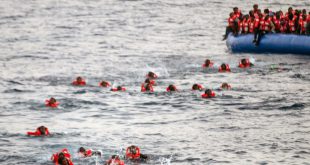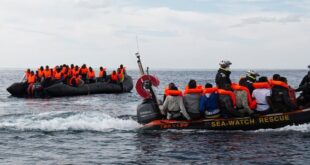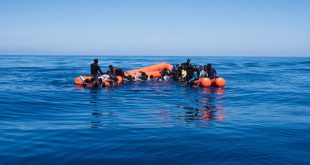Less than 20 per cent of migrants who reach Europe left their home countries for economic reasons, according to a report released by Middlesex University. The majority of migrants who reach European coasts are fleeing wars, violence and persecution.
The report “Mapping Refugee Reception in the Mediterranean” is the first in the research project EVI-MED at Middlesex University, funded by the Economic and Social Research Council (ESRC) and Department for International Development Mediterranean Migration Research Programme.
The findings contrast statements recently made by Italian Prime Minister Paolo Gentiloni at the G20 summit in Hamburg, where he said that economic migrants make up “more than 85 per cent of arrivals”.
War is main reason for migration
The report is based on the results of 750 questionnaires of migrants in reception centres in Greece, Sicily, and Malta, and 95 interviews with migrants and key informants, including government representatives, humanitarian agencies, NGOs and activists. According to the report, war was the biggest driver in Greece (48.7 per cent), Sicily (23.6 per cent) and in Malta (52.8 per cent). In Sicily, persecution was reported as the main driver with 48 per cent.
According to the reports, only 18 per cent described their motivation as economic. The results also revealed “shocking instances of abuse in transit, especially for those who had travelled via Libya”. It said that over half of migrants had been arrested or detained during transit, and 17 percent were forced to work without pay.
Better living conditions in Italy than in Greece
The report said there are “marked differences” between the various arrival countries both in demographic composition as well as the nationality of migrants, and that despite European directives, the concept of “reception” is not well-defined. It said that hotspots in Greece operate as “closed detention centres” while in Sicily the migrants spend little time there.
“Living conditions in Italy were generally better than in Greece, where accommodation offered ranged from insecure camp-like structures to shared housing”.
However, it said Italy lacks a “uniform reception system and migrants may be placed in a number of institutions” and that there were migrants accounts of having been put to work for low pay after arrival in Sicily. It said that asylum seekers and refugees generally are not treated as vulnerable categories, with the exception of minors and pregnant women.
Many of those interviewed said that they had never seen a doctor, and on average only 50 per cent of the migrants had received legal aid for their asylum requests.
Among the recommendations, the report said that there should be more uniformity in reception procedures, increased attention on personal dignity, safer reception structures in Greece and increased attention on labour exploitation in Italy.
© ANSA
 THE AFRICAN COURIER. Reporting Africa and its Diaspora! The African Courier is an international magazine published in Germany to report on Africa and the Diaspora African experience. The first issue of the bimonthly magazine appeared on the newsstands on 15 February 1998. The African Courier is a communication forum for European-African political, economic and cultural exchanges, and a voice for Africa in Europe.
THE AFRICAN COURIER. Reporting Africa and its Diaspora! The African Courier is an international magazine published in Germany to report on Africa and the Diaspora African experience. The first issue of the bimonthly magazine appeared on the newsstands on 15 February 1998. The African Courier is a communication forum for European-African political, economic and cultural exchanges, and a voice for Africa in Europe.


























